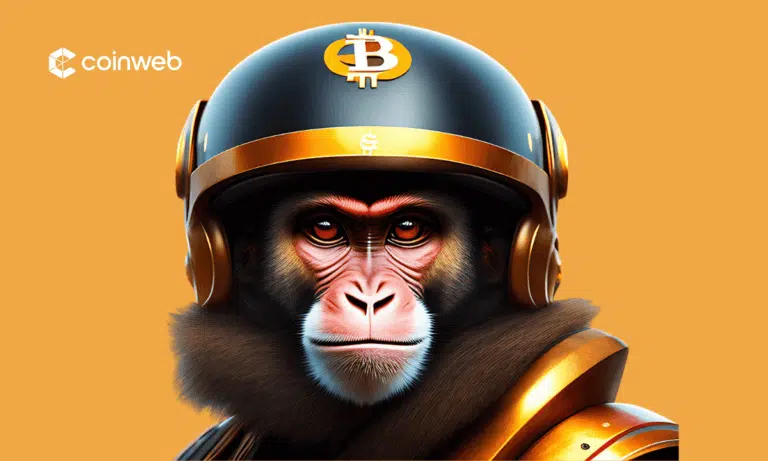TDLR
This comparison will give you everything you need to know about the key differences between Bitcoin vs. Bitcoin Cash.
A hard split in the Bitcoin network led to the creation of the digital currency known as Bitcoin Cash (BCH). It seeks to provide transactions with larger block sizes that are cheaper and quicker. The most valued and extensively used cryptocurrency is still Bitcoin (BTC).
Despite certain advancements, Bitcoin Cash hasn’t taken off or added noteworthy features to challenge Bitcoin. However, the market capitalization of Bitcoin is bigger, more widely used, and has a longer history.
Introduction
Are you interested in cryptocurrency and want to understand the distinctions between Bitcoin and Bitcoin Cash, two major digital currencies? You have landed at the right place!
Bitcoin and Bitcoin Cash are similar in some aspects, but the key differences set them apart. Bitcoin Cash was created due to a hard fork in the original Bitcoin network. That resulted in a new currency with larger block sizes.
On the other hand, Bitcoin is still the most valuable cryptocurrency in market capitalization and is gaining popularity. This guide goes into Bitcoin vs. Bitcoin cash, considering transactions, innovation, and much more.
Let’s get in!
| Bitcoin | Bitcoin cash |
| The maximum block size is 1MB. | The maximum block size has been increased to 8MB. |
| It enables up to 250,000 transactions per day. | It supports a staggering two million transactions daily. |
| It utilizes a scaling tool known as SegWit2x. | Larger blocks obviate the requirement for a scaling tool. |
| The average block processing time is ten minutes. | Block processing time automatically adjusts according to network conditions. |
What is Bitcoin (BTC)?

Bitcoin (BTC) is a well-known cryptocurrency and decentralized digital currency that functions without intermediaries. Bitcoin, first introduced in 2009 by an unidentified inventor or organization, Satoshi Nakamoto, has completely changed the world of finance.
Since then, it has grown to be the largest cryptocurrency worldwide. Moreover, due to the growing popularity of Bitcoin, numerous additional cryptocurrencies have been developed. However, these competitors aim to dethrone Bitcoin as a transaction processing method. Alternatively, find usage within other blockchains and advanced financial technologies as utility or security tokens.
Overall, Bitcoin remains the most well-known and widely used cryptocurrency. It offers users a decentralized digital currency powered by innovative Bitcoin blockchain technology.
What is Bitcoin Cash (BCH)?

A hard fork from the Bitcoin blockchain resulted in the creation of the digital currency known as Bitcoin Cash (BCH). However, while having certain new additions and modifications, Bitcoin Cash and Bitcoin are relatively similar.
Bitcoin Cash seeks to be an electronic peer-to-peer system with cheaper and faster transactions and transaction speeds. It is an alternative to Bitcoin by giving consumers access to digital cash for everyday transactions.
How Does Bitcoin Cash Work?
Bitcoin restricts blocks to 1 megabyte (MB), allowing for around seven transactions per second. However, Bitcoin Cash increased the block size from 8 to 32MB, allowing it to handle more than 100 transactions per second.
Moreover, Bitcoin Cash functions are very similar to Bitcoin regarding block size and transaction speed. It is a decentralized, open-source digital ledger that employs proof of work.
Miners use cryptography to solve equations to verify and add Bitcoin cash transactions to the blockchain. In exchange for their labor, they are rewarded with Bitcoin Cash coins. The coins can then be sold to other people. Like Bitcoin, Bitcoin Cash will only ever issue 21 million coins.
Bitcoin Cash (BCH) Vs. Bitcoin(BTC): What Are The Key Differences Between The Two Hard Forks?
Bitcoin Cash and Bitcoin share the same history but differ in some aspects, let us review the key differences between Bitcoin and Bitcoin Cash:
1. Concepts And Creation

Satoshi Nakamoto created the world’s first popular cryptocurrency, Bitcoin, in 2009. Surprisingly, because the Bitcoin Cash fork is a branch of the original Bitcoin blockchain, Nakamoto also developed it. Every other fork developed is effectively a derivative of the original Bitcoin network.
However, Bitcoin Cash launched in 2017 when the price of one bitcoin surpassed $20,000. Anyone with a whole Bitcoin received an equivalent quantity of Bitcoin Cash in their wallets during the hard fork.
Investors were thrilled, which fueled Bitcoin FOMO (fear of missing out), causing the cryptocurrency bubble to burst in late 2017.
The public release of Bitcoin Cash primarily aimed to improve the currency’s scalability and transaction speed. Despite its best efforts, Bitcoin Cash has yet to achieve Bitcoin’s level of market acceptance and popularity. Unlike other cryptocurrencies like Ethereum, it lacks differentiating features like smart contracts.
In conclusion, while Bitcoin Cash intended to address some of Bitcoin’s shortcomings, it has failed to gain substantial popularity or offer new selling features to compete with its predecessor.
2. Speed and Transaction
Bitcoin confirms each block approximately every ten minutes and has a transaction capacity of around 5 to 7 transactions per second.
As opposed to Bitcoin, which used 1MB blocks, Bitcoin Cash used 8MB blocks, speeding up the transaction verification process further. As a result, while keeping somewhat lower transaction costs, Bitcoin Cash can execute transactions more quickly than Bitcoin.
Because of its notably slow and inefficient transaction processing, bitcoin is more suitable as a store of value than a fast transactional currency.

Bitcoin Cash supporters created Bitcoin SV through a hard fork to improve scalability. However, both Bitcoin Cash and Bitcoin SV have not achieved the transaction speeds of faster altcoins like XRP. This raises the question of whether Bitcoin (BTC) modification was ever necessary in the first place.
Even if the scalability and transaction speed of Bitcoin and Bitcoin Cash has increased, they still have problems compared to other cryptocurrencies. The atmosphere surrounding cryptocurrencies, which is dynamic, continues to seek better crypto investment quicker and more efficient transactional techniques.
3. Supply and Distribution
Bitcoin and Bitcoin Cash share the same supply and have a similar distribution since they are derived from the same source code. However, supporters of BTC may have opted to buy bitcoin cash sell or disregard their BCH holdings. This could have slightly altered the distribution between the two cryptocurrencies.
Both have a fixed supply of 21 million coins and employ the same block reward halving mechanism.
It’s worth noting that the supply of BCH may be even smaller due to lost coins or users who never claimed them from old wallets. These factors contribute to the overall supply and distribution dynamics of Bitcoin Cash.
Understanding the supply and distribution of these cryptocurrencies helps investors and enthusiasts grasp their respective market dynamics and potential investment opportunities.
Trusted Partners
4. Use Cases and Target Market
The goal of Bitcoin Cash’s creation was to speed up Bitcoin. It has, however, found it difficult to overtake Bitcoin in terms of acceptance and appeal; as a result, it may never find universal support or turn into a major and popular cryptocurrency.
This lack of success led to another hard fork, resulting in Bitcoin SV (BSV), a separate blockchain derived from the Bitcoin Cash network.
The target market for Bitcoin and Bitcoin Cash remains the same, primarily appealing to investors and individuals interested in digital currencies. However, Bitcoin has established itself as the leading cryptocurrency, while Bitcoin Cash and Bitcoin SV face challenges in gaining widespread recognition and market dominance.
The competition among these different versions of Bitcoin continues to shape the evolving cryptocurrency landscape.
5. Difficulty Adjustment
Adopting a difficulty adjustment mechanism in BCH is one of the fundamental differences between Bitcoin and Bitcoin Cash. Because both the Bitcoin network and Bitcoin Cash use the same SHA-256 hashing technique, Bitcoin miners can move to the Bitcoin Cash network when it becomes more economical to mine there.

As a result, market dynamics may cause considerable variations in the computer power powering the Bitcoin Cash network. The difficulty adjustment algorithm comes into play to maintain a stable block generation rate of approximately 10 minutes.
It adjusts the difficulty level to confirm transactions based on the mining speed, either halving it if blocks are being generated too slowly or doubling it if they are being produced too quickly. This mechanism ensures a consistent and predictable block generation rate for more transactions on the Bitcoin Cash network.
Introducing this difficulty adjustment algorithm in Bitcoin Cash aims to promote network stability and ensure a reliable blockchain ecosystem for Bitcoin users.
6. Smart Contracts and Decentralized Finance
Unlike Bitcoin Cash, Bitcoin does not enable smart contracts natively. However, Square CEO Jack Dorsey recently stated that attempts are ongoing to construct decentralized financial (DeFi) services on top of the Bitcoin network. On the other hand, Bitcoin Cash has taken steps to enable more complex functionalities by incorporating smart contract languages like Cashscript.

To enhance its competitiveness against Bitcoin and Ethereum (ETH), Bitcoin Cash is embracing DeFi through tools like CashShuffle and CashFusion, which focus on improving network privacy. These developments demonstrate Bitcoin Cash’s commitment to expanding its capabilities and exploring new possibilities in smart and decentralized contracts.
7. Token Issuance
Projects typically utilize the Omni layer to issue tokens on the Bitcoin blockchain, a platform designed for creating and trading custom digital assets. Omni transactions incorporate next-generation features, but the layer has mostly been adopted for stablecoins.
Bitcoin Cash adopted the Simple Ledger Protocol (SLP), empowering developers to issue tokens atop the BCH network, akin to token creation on Ethereum.
While both the Omni layer and SLP tokens have issued some assets, the availability of tokens on different blockchains allows users to select their preferred network. However, the steady adoption rate of these tokenization solutions has been somewhat underwhelming.
SLP also supports non-fungible tokens (NFTs) that possess unique properties. However, their utilization on the BCH network has been limited compared to Ethereum and other blockchains, where NFTs have gained more prominence.
8. Replace-by-fee
Replace-by-fee (RBF) is a handy feature on the Bitcoin network, allowing users to replace a stuck and unprocessed transaction with a new version that includes a higher transaction fee. This ensures faster processing of urgent transactions.
However, RBF has faced criticism as some believe it might facilitate double-spending by malicious actors. The attacker could send a transaction with a minimal fee for a product or service and then quickly replace it with another transaction containing a higher fee. This will redirect the funds to their own blockchain wallet before confirming the merchant’s transaction.
To address this concern, most RBF implementations require the signature data of new transactions to include all the same outputs to prevent double-spending. Additionally, if the recipient waits for a few network confirmations, the risk of RBF is eliminated as the original transaction gets confirmed.
On the other hand, Bitcoin Cash has decided to drop the RBF feature entirely, making unconfirmed Bitcoin transactions irreversible on its network. The higher transaction throughput of Bitcoin Cash also reduces the likelihood of double spending through RBF.
Bitcoin Cash Vs. Bitcoin: Historical Price Action Reviewed

When Bitcoin launched in 2009, it was valued at only a few pennies on the open market and had little to no value. Contrarily, Bitcoin has increased to over $30,263 in less than 14 years after its introduction, firmly establishing its position as the leading digital currency.
Bitcoin, the leading cryptocurrency, continued its upward trajectory. It reached an all-time high of $67,617 in late 2021. Despite experiencing several corrections, Bitcoin’s price remained resilient, demonstrating its strength and the growing acceptance of digital assets. By mid-2023, Bitcoin’s price was around $30,263, reflecting its journey’s volatile yet upward trend.
On the other hand, Bitcoin Cash also experienced a surge during the bull market. It reached its all-time high of $3,785 in late 2017. However, during the 2021-2023 bull market, it managed to maintain steady growth, reflecting the overall positive sentiment in the crypto market. As of mid-2023, Bitcoin Cash is valued at $269.24.
Bitcoin has endured multiple bear markets and emerged stronger each time, reaching new all-time highs. In contrast, Bitcoin Cash is yet to prove itself in the face of market downturns.
The historical price action of Bitcoin and Bitcoin Cash demonstrates the contrasting journeys of these cryptocurrencies and their respective paths to success.
BCH Vs. BTC: Which Is a Good Investment
There is no rivalry when it comes to BTC. Its status as the top cryptocurrency by market capitalization on major exchanges and trading platforms attests to its genuine article. Investors have chosen BTC above alternative options, indicating that the market has spoken.
Until Bitcoin Cash (BCH) replaces Bitcoin as the standard version of the digital currency, Bitcoin will continue to be the better investment. However, Bitcoin (BTC) still has the upper hand regarding market capitalization and price per coin. It would then just boil down to a BCH vs. BTC comparison.
Because Bitcoin had laid the foundation for the cryptocurrency industry, Bitcoin Cash had the chance to become widely accepted. It could not garner any traction, and the fact that it is still falling behind BTC implies that it may never catch up.
With its solid establishment and substantial market value advantage, BTC is a compelling speculative investment option. In the unpredictable world of cryptocurrencies, Bitcoin currently holds an edge over Bitcoin Cash, though the future remains uncertain.
We recommend Binance as the easiest exchange to get started.


More details
Binance is a great combination of low fees, deep liquidity and multiple cryptocurrencies and trading pairs. We have tested every aspect of it and it STILL holds its reign as the top exchange in the world. In our view, it is the perfect crypto exchange for both newbies and advanced traders alike.
-
Biggest exchange in the world.
-
Industry's lowest trading fees.
-
Advance trading options like leverage trading.
-
600+ crypto options, 150+ for the US.
-
Lucrative on-site staking options.
-
Hiccups in account verification.
-
Less regulated than some competitors.
-
The corporate structure is not transparently.
Investors should consider these aspects while weighing their alternatives because BTC is a more attractive option, given its market cap and popularity.
The Bitcoin Cash network offers a significantly greater transaction verification speed and throughput rate than the Bitcoin network. However, the shorter transaction verification time has certain downsides. For instance, BCH's bigger blocks may jeopardize the security of the Bitcoin network.
BCH is a moderate-risk investment based on its current risk score. This score will be most helpful to investors primarily concerned with a risk assessment to avoid (or maybe seek out) hazardous assets.
The most major exchanges' differences depend on the block size of the networks. The current size of the Bitcoin money is 32 MB, even though the Bitcoin size is still 1 MB. BCH transactions can be completed at least 200 times per minute and cost less than one penny each.
It is difficult to predict whether Bitcoin Cash will be a good investment, just as with any other cryptocurrency. However, if the market falls, its enormous market cap, strong technological base, and excellent prospective use may assist it in maintaining its price.
Summary
Bitcoin and Bitcoin Cash are two prominent cryptocurrencies with distinct characteristics. Despite sharing a common background and blockchain, they differ in transaction processing, market acceptance, pricing, and target audience. Bitcoin is a trustworthy store of value and decentralized digital money. It is also the first and most valued cryptocurrency.
Conversely, Bitcoin Cash, which offers larger block sizes and speedier transactions for regular usage, evolved in response to scalability and transaction speed worries. To develop market domination, Bitcoin Cash has failed to match Bitcoin’s level of commercial acceptability and appeal.
To make wise judgments as the market changes and new technologies are developed, investors and enthusiasts must remain current on the state of the cryptocurrency industry.













